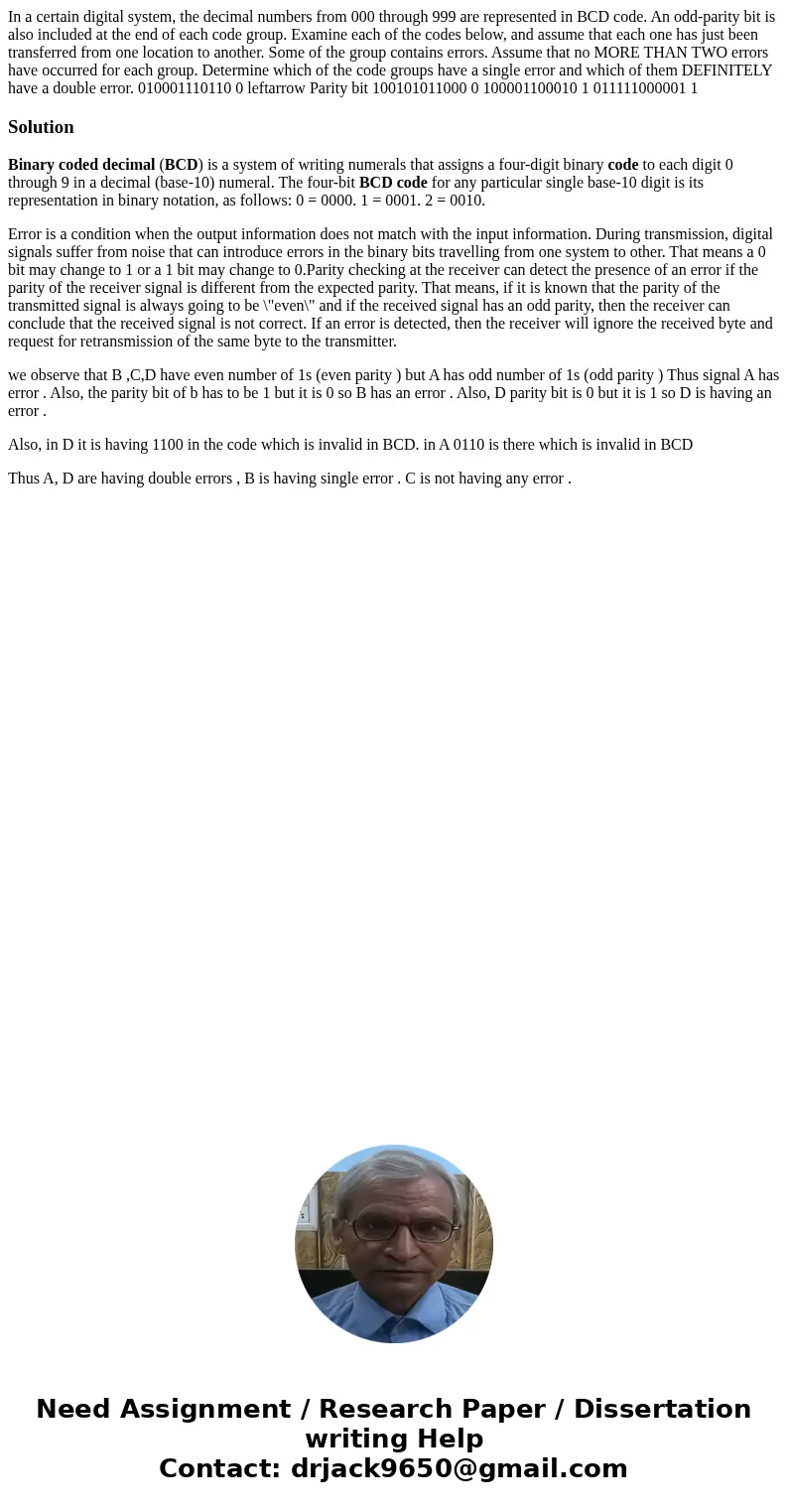In a certain digital system the decimal numbers from 000 thr
Solution
Binary coded decimal (BCD) is a system of writing numerals that assigns a four-digit binary code to each digit 0 through 9 in a decimal (base-10) numeral. The four-bit BCD code for any particular single base-10 digit is its representation in binary notation, as follows: 0 = 0000. 1 = 0001. 2 = 0010.
Error is a condition when the output information does not match with the input information. During transmission, digital signals suffer from noise that can introduce errors in the binary bits travelling from one system to other. That means a 0 bit may change to 1 or a 1 bit may change to 0.Parity checking at the receiver can detect the presence of an error if the parity of the receiver signal is different from the expected parity. That means, if it is known that the parity of the transmitted signal is always going to be \"even\" and if the received signal has an odd parity, then the receiver can conclude that the received signal is not correct. If an error is detected, then the receiver will ignore the received byte and request for retransmission of the same byte to the transmitter.
we observe that B ,C,D have even number of 1s (even parity ) but A has odd number of 1s (odd parity ) Thus signal A has error . Also, the parity bit of b has to be 1 but it is 0 so B has an error . Also, D parity bit is 0 but it is 1 so D is having an error .
Also, in D it is having 1100 in the code which is invalid in BCD. in A 0110 is there which is invalid in BCD
Thus A, D are having double errors , B is having single error . C is not having any error .

 Homework Sourse
Homework Sourse